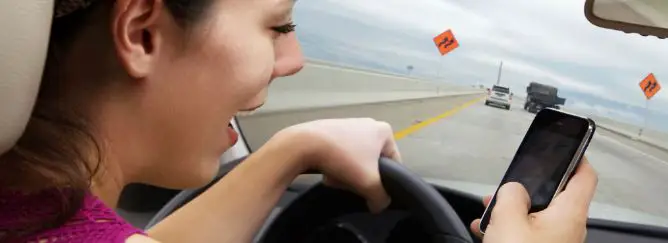Distracted driving has become a significant concern in Texas, as well as across the United States. With the increasing use of smartphones and other electronic devices, drivers are more prone to distractions, putting themselves and others at risk. In this article, we will explore the issue of distracted driving in Texas, its impact on road safety, and the consequences of distracted driving while in Texas.
Definition and Types of Distractions
Distracted driving refers to any activity that diverts a driver’s attention away from the primary task of operating a vehicle. These distractions can be categorized into three main types:
Visual Distractions: Anything that takes the driver’s eyes off the road, such as looking at a phone, GPS, or an advertisement.
Manual Distractions: Any activity that requires the driver to take their hands off the steering wheel, like texting, eating, or adjusting the radio.
Cognitive Distractions: Activities that divert the driver’s mental focus, such as talking on the phone, daydreaming, or engaging in deep conversations.
Statistics on Distracted Driving
Distracted driving has alarmingly contributed to accidents and fatalities on Texas roads. According to recent statistics:
In 2022, there were over 1 in 6 crashes were related to distracted driving in Texas.
These crashes resulted in 487 deaths and over 2,800 serious injuries.
Drivers under the age of 25 are more likely to engage in distracted driving behaviors.
Distracted Driving Laws in Texas
To combat the issue of distracted driving, Texas has implemented several laws and regulations.
- Mobile Phone Use Laws
Texas law prohibits the use of handheld phones while driving in school zones and for novice drivers. Drivers are required to use hands-free devices or speakerphones to communicate.
- Texting and Driving Laws
In Texas, it is illegal to read, write, or send electronic messages while driving. This includes text messages, emails, and social media updates. The law applies to all drivers regardless of age or experience.
- Other Distractions and Laws
Apart from mobile phone use and texting, Texas laws also address other forms of distractions. Drivers can be penalized for activities such as grooming, eating, watching videos, or interacting with pets while driving.
Consequences of Distracted Driving
Accidents and Fatalities
Distracted driving significantly increases the risk of accidents and fatalities. Studies have shown that drivers who engage in distractions are more likely to miss traffic signals, fail to maintain their lane and react slower to potential hazards.
Financial and Legal Consequences
Being involved in a distracted driving accident can have severe financial and legal repercussions. Drivers may face hefty fines, increased insurance premiums, license suspensions, and even civil lawsuits.
Emotional and Psychological Impact
Distracted driving accidents can cause emotional trauma and psychological distress for both the drivers involved and their families. Survivors may suffer from anxiety, depression, and post-traumatic stress disorder (PTSD).
Conclusion
Distracted driving is a pressing issue that jeopardizes the safety of individuals on Texas roads. By understanding the different types of distractions, implementing stricter laws, promoting education and awareness, and leveraging technological advancements, we can work towards mitigating this problem. Remember, safe driving requires focus, responsibility, and a commitment to keeping ourselves and others out of harm’s way.







